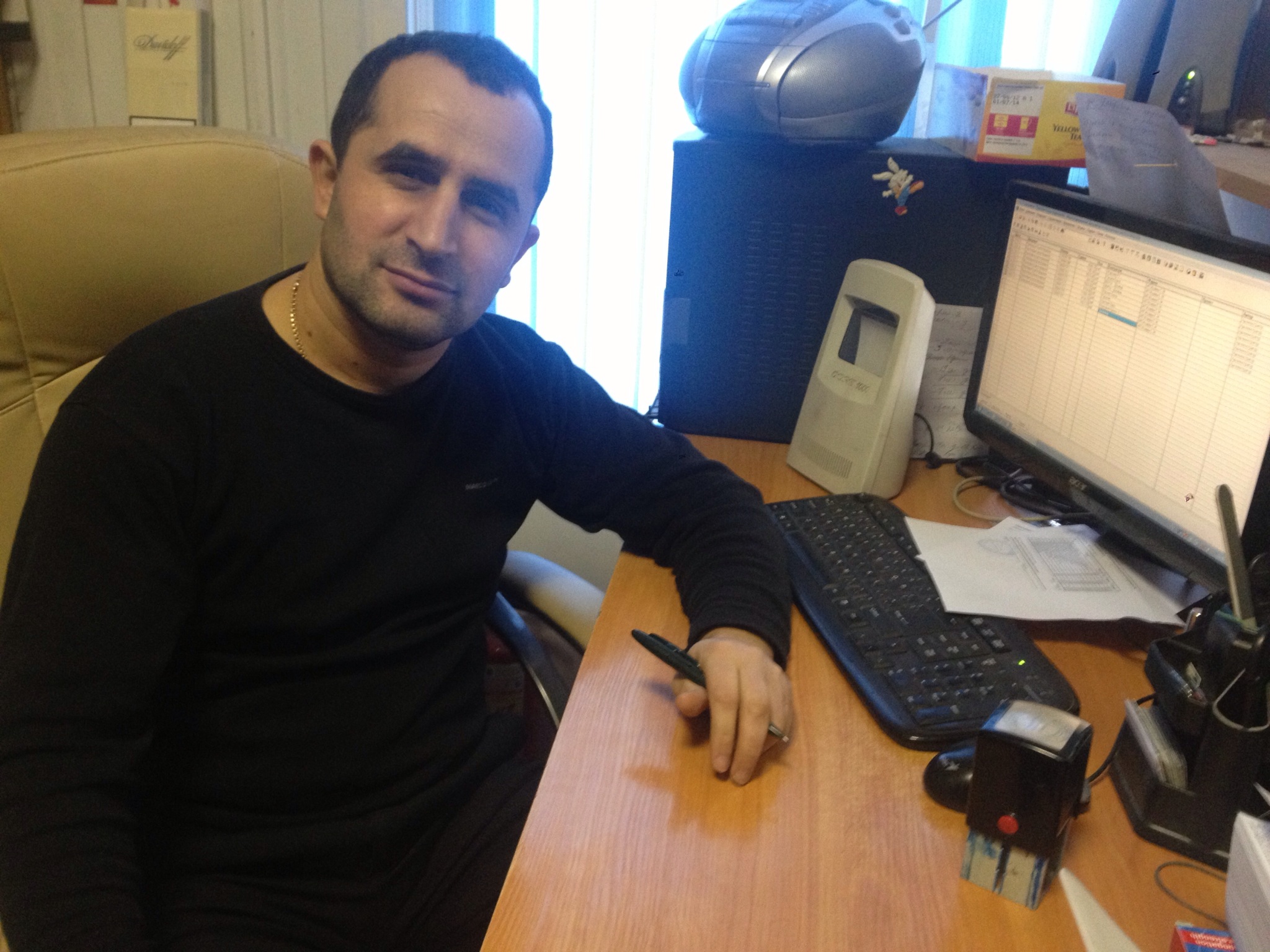

An Azerbaijani anti-government blogger has been deported from Ukraine to Azerbaijan just days before Ukrainian President Volodymyr Zelensky was due in Baku on an official visit.
Azerbaijan’s State Migration Service announced on Saturday that Elvin Isayev had been deported two days earlier, on 12 December.
His arrest came shortly before a planned two-day visit to Azerbaijan by Zelensky on 16-17 December.
In their statement, the Azerbaijani Migration Service said Isayev was deported for violating Ukrainian immigration law.
They said that after being provided ‘temporary shelter after a voluntary medical examination’, Isayev was transferred to a pre-trial detention centre.
The Nasimi District Court issued a warrant for Isayev’s arrest on 22 August, based on an investigation by Azerbaijan’s Prosecutor General’s Office for Grave Crimes.
Family and friends have claimed Isayev was kidnapped in Ukraine at the behest of the Azerbaijani authorities, because of his publications criticising the Azerbaijani authorities.
Azerbaijani human rights activists have questioned the legality of the deportation.
So far neither the Azerbaijani nor Ukrainianian governments have specified the exact grounds on which he was deported.
Isayev’s disappearance in Kyiv coincided with a visit by Azerbaijani Deputy Prime Minister Ali Ahmedov to Ukraine.
His disappearance was highlighted by Ukrainian media outlets at the time.
Isayev, who is ethnically Talysh, has 20,900 subscribers on his YouTube channel. He was also a frequent guest of the AzerFreedom YouTube channel, run by journalist Gurban Mammadov, which has over 48,500 subscribers.
He frequently accused Azerbaijani President Ilham Aliyev and his family of being dictators, calling the government a totalitarian regime.
A failed deportation from Russia
In August, Isayev, who is a Russian citizen, was arrested in Saint Petersburg, where he was living at the time. Isayev is married to a Russian citizen with whom he has children.
‘They wrote in the arrest protocol that his [Russian] passport had been cancelled and that Isaev did not have a document to stay in Russia. Neither we nor our client knows what caused Isaev’s passport to be recognised as invalid’, Isayev’s lawyer at the time, Yuriy Serov from the Memorial Human Rights Centre, told Kommersant in September.
‘I think that this whole situation shows signs of a coordinated operation’, he said.
Serov said that Isayev had legally obtained a Russian passport 18 years prior.
‘Over the past 18 years, the document has been checked several times, he received a new passport in 2014, an international passport, a military ID, and a weapons permit. No questions regarding his citizenship appeared’, he said.
On 26 August, Saint Petersburg’s Dzerdzhinsky District ordered that Isayev be expelled from Russia and he was transferred to a temporary detention centre to await deportation.
Isayev’s relatives appealed the case to the European Court of Human Rights (ECHR), while his wife and son released a video appeal to Russian President Vladimir Putin to investigate the situation.
On 10 September the ECHR placed a temporary suspension on the Dzerzhinsky District Court’s deportation order. As a result, Isayev’s case was sent back to the Dzerzhinsky District Court for review and he was released from custody.
‘He stayed in Ukraine legally’
Isayev’s cousin, Mirjalil Isayev, told journalists that Isayev began blogging in 2015. He said that since 2018, he had become a harsh critic of the Azerbaijani government, after which he began receiving death threats.
Mirjalil Isayev said that despite the ECHR suspension order, the Main Directorate of Saint Petersburg issued a ruling on 18 September deeming Elvin a threat to state security.
‘We were notified only on [26 September] and we had only until 27 September’, he said.
Isayev said that after understanding that his cousin was to be deported to Azerbaijan, they travelled to Ukraine believing he would be safe there.
He said that for security reasons they often changed apartments in Kiyv.
‘He stayed in Ukraine legally. He had a legal 90 days of stay until 27 December’, said Isayev, adding that his cousin arrived in Kiyv on 27 September.
Gurban Mammadov, a UK-based Azerbaijani journalist, said on his YouTube channel that Ukraine had ‘no legal grounds to deport him’.
Mammadov told the Kiyv Post that Isayev had been formally charged with ‘defamation and disparagement of the president of Azerbaijan’, which is punishable by up to five years in prison.
‘When we say deportation we mean a court’s decision. He was just kidnapped. As a lawyer, I am shocked how the Ukrainian authorities could let this happen […] not for the deprivation of his freedom, but with the aim of his torture, humiliation, and his physical annihilation’, he said.
Opposition journalists’ persecution abroad
Isayev is not the first high-profile government critic to be targetted by the Azerbaijani government abroad.
Journalist Fikrat Huseynli, who had Dutch citizenship, was detained in Ukraine in October 2017 at Boryspil International Airport on the basis of an Interpol red card issued by Azerbaijan.
Huseynli has covered the opposition’s work in exile and exposed corruption in the Azerbaijani government. He has also criticised Azerbaijani President Ilham Aliyev.
Huseynli travelled to Ukraine to examine the possibility of opening a branch of Turan TV satellite channel in Kiyv.
After holding Huseynli for half a year, Ukrainian authorities returned his passport and he was able to return to the Netherlands.
Fakhraddin Abbasov, an ethnic Talysh Azerbaijani activist, was deported from Russia to Azerbaijan in March, where he was immediately arrested. Russia ignored a plea from Amnesty International not to hand him over to Azerbaijani authorities amid fears he may face torture.
Azerbaijan’s State Security Service said that Abbasov was deported immediately after his Russian residence permit expired. Abbasov was accused of public calls for a violent change of the constitutional order on the instructions of foreign organisations or their representatives.
Afghan Mukhtarli, a veteran investigative journalist, disappeared in Tbilisi on 29 May 2017 on his way home after meeting a friend in a café. He resurfaced jailed in Azerbaijan the next day.
According to his lawyers, Mukhtarli was kidnapped by four Georgian-speaking men, three of them wearing police uniforms, who planted money in his pocket as they crossed the Georgian-Azerbaijani border.
Mukhtarli was charged by the Azerbaijani authorities with smuggling €10,000 in cash, illegal border crossing, and resisting police, eventually being sentenced to six years imprisonment.
[Read more: The Afgan Mukhtarli case: an investigation stalled?]








